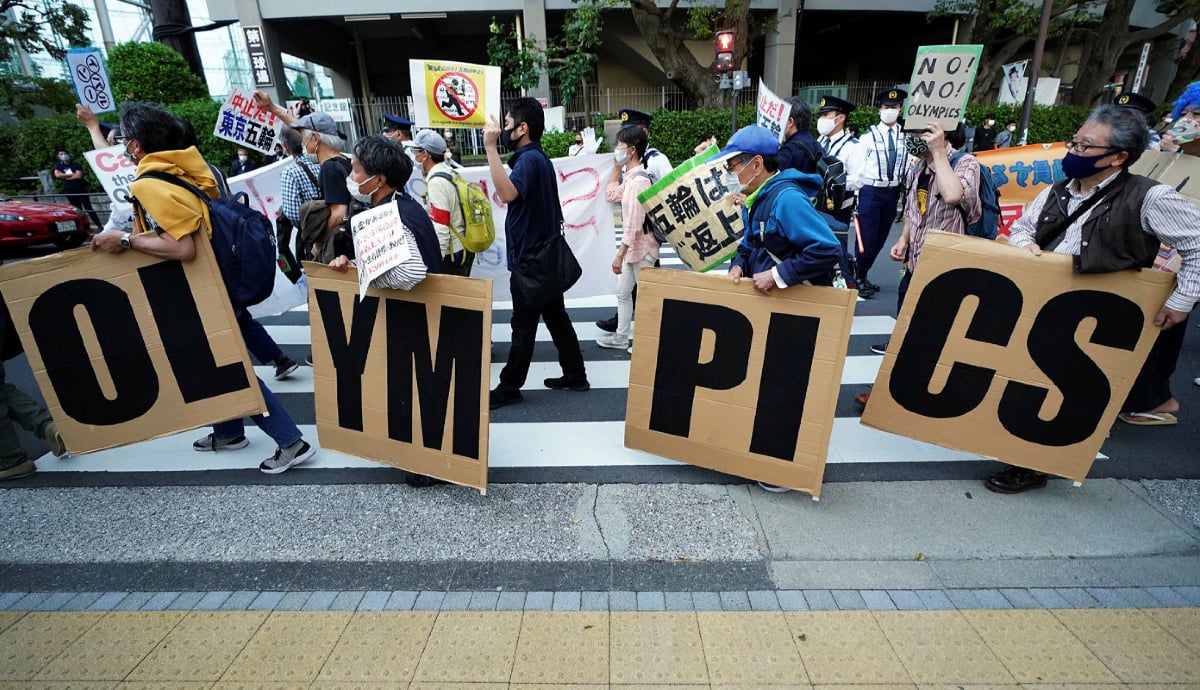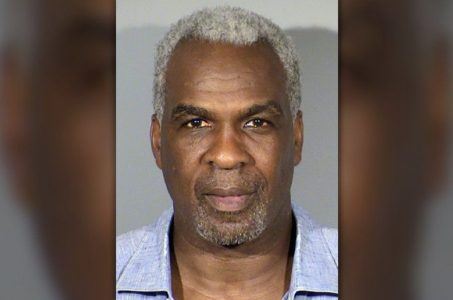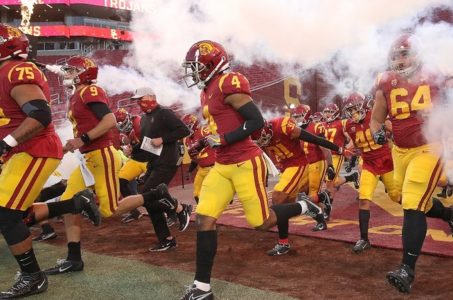Tokyo Bans Most Fans at Summer Olympics, as City Undergoes State of Emergency
Posted on: July 8, 2021, 10:05h.
Last updated on: July 8, 2021, 11:10h.
The Tokyo Olympics will be mostly without fans after the Japanese capital city announced a state of emergency because of COVID-19.

Japan Prime Minister Yoshihide Suga is staking his 2021 reelection campaign, set for October, on hosting a successful Summer Olympics. Suga has moved forward his predecessor Shinzo Abe’s wishes to bring large-scale integrated casino resorts to the Asian nation in order to increase tourism.
The Olympics, however, are wildly unpopular in Japan, as citizens across the country — especially in Tokyo — have voiced concerns that the international spectacle will result in a COVID-19 surge. That surge has already arrived.
Taking into consideration the impact of the Delta strain, and in order to prevent the resurgence of infections from spreading across the country, we need to step up virus prevention measures,” Suga said of the emergency declaration.
As of now, Olympic venues in Fukushima and Miyagi in northeastern Japan and Shizuoka in the center of the country will still admit up to 10,000 spectators. All other venues will be without fans.
Casino Impact
Suga’s controlling Liberal Democratic Party (LDP) was dealt a major blow during the July 4 Tokyo Metropolitan Assembly election in which the party lost seats. Exit polling found that a majority of voters believe the Summer Games should be canceled.
“The Suga administration has presided over a string of LDP defeats in elections for national and local office. The Tokyo Metropolitan Assembly election, in particular, is considered a bellwether for national elections, so its impact on the general election will be immense,” The Mainichi editorial staff wrote this week.
“Prime Minister Suga must take the result to heart, and reconsider his hitherto self-righteous attitude on the Tokyo Games and the coronavirus pandemic,” the editorial concluded.
In Japan, the National Diet — its version of Congress — appoints the prime minister for a four-year term. There are no term limits. The Diet must vote on a prime minister on or before October 22, 2021.
The Diet remains controlled by the LDP, but there are opposition factions within the party. Along with the Olympics, Suga’s ambitions to bring commercial casino resorts to Japan have caused division within the party.
Hachiro Okonogi has served in the Diet since 1993. A longtime member of the LDP, Okonogi announced last month that he is running to become the next mayor of Yokohama. He seeks to oust current Mayor Fumiko Hayashi from the post that she’s held since 2009.
Hayashi, also an LDP member, supports Yokohama bidding on one of Japan’s three expected integrated resort licenses. Okonogi is conversely running on an anti-gambling platform.
US Favored at Games
As for the Olympics, scheduled for July 23 through August 8, the United States is heavily favored to take home the most medals.
William Hill has the USA at 1/9 to win the most decorations. To win $100 on those odds, a bettor must risk $900. The over/under for total gold medals won by the US is set at 43.5.
At the 2016 Summer Olympics in Brazil, Team USA won 46 gold medals, 37 silver, and 38 bronze. The 121 total medals easily beat second-place Great Britain, who had 67 total medals.
Related News Articles
Drew Brees’ Return Highlights Only Big Game of NFL Week 15
USC Trojans Fans Question University Naming Official Casino Resort Sponsor
Most Popular
Las Vegas Overstated F1 Race’s Vegas Impact — Report
Mega Millions Reportedly Mulling Substantial Ticket Price Increase
Las Vegas Strip Stabbing Near The Strat Leaves One Man Dead
LOST VEGAS: ‘Tony The Ant’ Spilotro’s Circus Circus Gift Shop
Most Commented
-
End of the Line for Las Vegas Monorail
— April 5, 2024 — 90 Comments -
Mega Millions Reportedly Mulling Substantial Ticket Price Increase
— April 16, 2024 — 6 Comments -
Long Island Casino Opponents Love New York Licensing Delays
— March 27, 2024 — 5 Comments -
Tropicana Las Vegas to be Imploded, Tentative Date Set
— April 4, 2024 — 4 Comments
















No comments yet